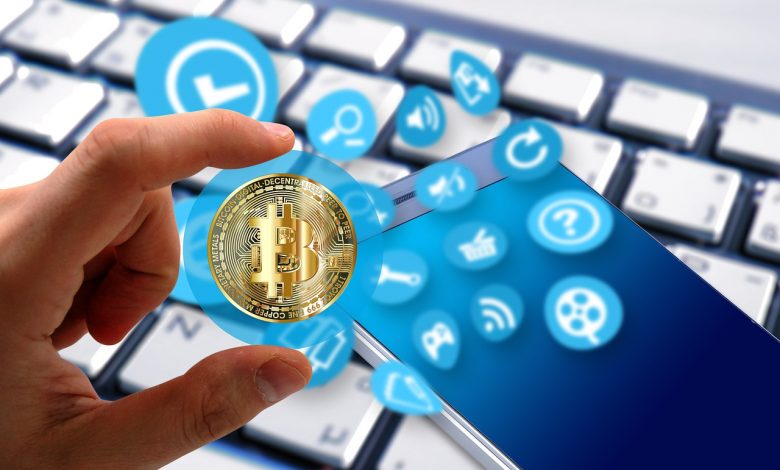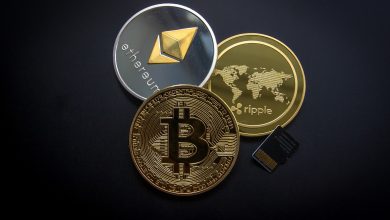Is Crypto Coming to a Phone Near You?

With all the talk of cryptocurrency hitting mainstream projects, such as Bakkt’s launch of crypto-related products for use at chains like Starbucks, crypto is seeing integration in more and more common places. In conjunction with this trend, some major smartphone players have made announcements regarding the integration of crypto into the hardware of their phones. While the Bitcoin price has risen in 2019 regardless of mass mainstream adoption, the joining of forces between the world of crypto and major phone producers may play a large role in accelerating the adoption rate of crypto in the coming years.
Integration with Native Apps
Just like you might manage your finances on your phone through apps like Chase Mobile, Mint, or another preferred provider, cryptocurrency apps offer the same opportunity. Whether you’re putting money into crypto as a long-term investment, buttressing your savings habits by investing extra cash regularly into cryptocurrency, or staking your stablecoins or other funds for the interest earned, having an app on your phone to handle the task makes the whole business infinitely easier. With crypto, like any other app, you can download many of the apps necessary to interact with crypto from the Apple AppStore or Google Play Store. However, smartphone manufacturers like Samsung have decided to make their phones with crypto capabilities coming standard at purchase.
Samsung’s Move Into Crypto
Samsung accounts for roughly twenty percent of global smartphone sales. Selling almost 300 million phones just last year, its recently launched smartphone models S20, S20+, and S20 Ultra support blockchain and cryptocurrency transactions with a built-in crypto wallet. Touting on their website the security of the wallet through their proprietary Knox platform, Samsung’s new line of phones include support not only for Bitcoin, but also for smart-contract platform Ethereum, and many of the “ERC-20” tokens that comprise the majority of other crypto offerings – from collectible, non-fungible tokens, to utility tokens, and almost all other assets that are tradeable on the blockchain. Additionally, Samsung is also incorporating support for decentralized applications.
Decentralized applications – or “dApps,” for short – are apps that function just like the other, centralized apps on your phone that come from the Apple AppStore or Google Play. They can include games, finance apps, or any other array of tools and entertainment. However, because they run on a distributed computing system, rather than in a centralized location, they require a different type of app store to use. More and more apps are being built on distributed networks, and Samsung has clarified that they seek to be at the forefront of development when it comes to the “fairness, security, and transparency” that decentralized systems can offer. While games are leading the pack in dApp creation at a rapid clip, Samsung also sees value in blockchain applications across multiple industries, such as finance, medicine, and real estate, as well as other types of entertainment.
Why is integration important?
One of the risks of crypto has long been leaving one’s funds on an exchange, where trust is relegated to the exchange and dependent upon the merits of those running the exchange, as well as the solidity of the exchange’s own security. Additionally, exchanges traditionally tend to be more frequent targets for hacks or other security breaches. This is owing to the volume of people who may have access to sensitive information – as well the sheer volume of funds being held, offering a significant payoff for anyone who may manage to breach their systems. By having an individual wallet with funds stored by a single user, sensitive information is kept private. Likewise, the targets of a potential hack become greater in number, with each one holding fewer funds, making the payoff for a single hack less appealing. “Not your keys, not your coins,” is a common mantra in the cryptocurrency world, and its implication is that, if you’re not in control of your own security, you don’t know what might happen to your funds. Samsung, with their built-in wallet, aims to give its smartphone users that control.
Expanding Integration
Samsung is not alone. Smartphone maker HTC has also already launched its Exodus 1 with blockchain integration, and includes even greater crypto capabilities – such as running a Bitcoin node straight from the phone – in its Exodus 1s model, which hit markets in October of last year. Apple, meanwhile, has launched a “CryptoKit” for developers to use in conjunction with its upcoming operating system, iOS 13. Just before the company’s highly anticipated iPhone 11 launch, Apple executive Jennifer Bailey, vice president of Apple Pay, touted cryptocurrency as having “interesting long-term potential.” LG, lastly, has applied for a trademark of the “ThinQ Wallet” as of July, an app whose filing documents purport its purpose would be to facilitate financial transactions, including crypto settlements.
While smartphone behemoth Samsung has already taken its first steps into the crypto world by integrating native tools for interacting with dApps, trading tokens, and using cryptocurrency, other major players like Apple may not be far behind. Meanwhile, the current AppStore and Google Play hubs already support a large number of crypto offerings, despite the insistence by some that cryptocurrency is simply a passing fad. As cryptocurrency and crypto assets develop into the future, and with groundwork being laid across the board for crypto innovation, it may be very likely that the next time you upgrade to the latest smartphone, you’ll find some interesting new options.
Quick-read guide to some of the terms in this article:
ERC-20: The “model number” that describes the format on which most non-fungible tokens, as well as a large majority of all other tradeable tokens, are built.
Non-fungible token: NFTs represent digital collectible items whose ownership is recorded on the blockchain, from trading cards to digital real estate and more.
Utility token: A token that offers access to a specific provider’s products or services, much like how credit on a store card functions at a retailer (as one example).
dApp (Decentralized Application): An app that functions similarly to an app of any kind from the Apple AppStore or Google Play, but that runs on a distributed, rather than centralized, network.



